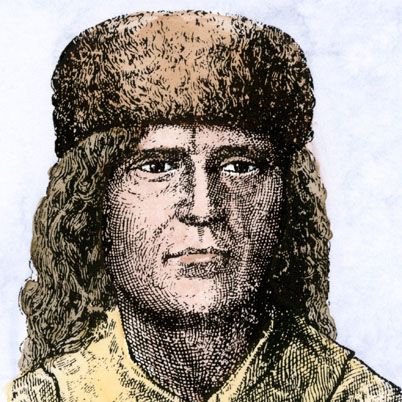You are viewing the article Louis Joliet at Tnhelearning.edu.vn you can quickly access the necessary information in the table of contents of the article below.

(1645-1700)
Who Was Louis Joliet?
Louis Joliet pursued religious and musical studies until deciding in adulthood to become a fur trader. In 1673, he embarked on a trip with missionary Jacques Marquette along the Mississippi River, ascertaining with Native American guidance that it led to the Gulf of Mexico. Joliet made later expeditions to the Hudson Bay and Labrador Coast.
Early Life
Louis Joliet (also spelled “Jolliet”) was born sometime in the mid-17th century in or near the Quebec, New France settlement to Marie d’Abancourt and John Joliet. Baptized on September 21, 1645, he entered a Jesuit school as a child and focused on philosophical and religious studies, aiming for priesthood. He also studied music, becoming a skilled harpsichordist and church organist. Yet he decided to leave the seminary as an adult and pursued fur trading instead.
North American Travels
In 1673, Joliet embarked on a privately-sponsored expedition with Jacques Marquette, a missionary and linguist, to be among the first Europeans to explore what was called by Native Americans the “Mesipi” river and ascertain where it led to, with hopes of finding a passage to Asia. After meeting in the Michilimackinac region, the men started their journey by canoe on May 17, 1673, to what would be known as the Mississippi River. A month later, they came upon a native village in the Illinois area and were hosted by the tribe’s chief, who sent his son with the group as a guide along with a peace pipe for future safe passage.
Continuing their travels to the Arkansas River region, they eventually came upon a native tribe ready to attack near the region that would be known as St. Louis. After seeing the peace pipe in Joliet’s hands, the tribe took the explorers to their village and revealed that there were armed Europeans further along the Mississippi. Joliet and Marquette realized that these were the Spanish settlers at the Gulf of Mexico — deducing that’s where the Mississippi led to and not Asia — and hence decided to turn around to avoid conflict and capture, having also noted other westward rivers. Along the way back, the young native guide showed the explorers a shorter route home by taking the Illinois River, with the men coming upon Lake Michigan and rich prairie land. Marquette came back to the area the following year with plans of proselytization, but died from dysentery.
Joliet split from Marquette on his way back to Quebec and, in 1674, took a shortcut through the rapids of Lachine along the St. Lawrence. His canoe capsized, taking the lives of the additional passengers, including the chief’s son. Joliet was saved by fishermen after holding on to a rock for hours. Losing all of his highly detailed maps and journals, he recomposed some notes of the journey from memory, but Marquette’s recovered notes became the more relied upon resource.
Later Years and Death
The following year, Joliet wed Claire-Françoise Bissot and became more actively involved in Quebec’s church and community life. He returned to fur trading in 1676, setting up a business in the northern region of the St. Lawrence and also working as a merchant in the Mingan Archipelago. He took on another exploratory mission in 1679, at the behest of French colonists, to survey English and Native American trading relations in the Hudson Bay area.
Toward the end of the 17th century, Joliet was internationally known for his expeditions, from which official regional maps were created. Joliet went on another trip in 1694 to make detailed observations of the Labrador Coast, and in 1697, became a hydrography professor at the University of Quebec. He died in 1700.
QUICK FACTS
- Name: Louis Joliet
- Birth Year: 1645
- Birth date: September 21, 1645
- Birth City: Quebec (then New France)
- Birth Country: Canada
- Gender: Male
- Best Known For: Louis Joliet was a 17th century Canadian explorer who, aided by Native American communities, explored the origins of the Mississippi River.
- Astrological Sign: Virgo
- Death Year: 1700
- Death City: Near the St. Lawrence River (then New France)
- Death Country: Canada
Fact Check
We strive for accuracy and fairness.If you see something that doesn’t look right,contact us!
CITATION INFORMATION
- Article Title: Louis Joliet Biography
- Author: Biography.com Editors
- Website Name: The Biography.com website
- Url: https://www.biography.com/history-culture/louis-joliet
- Access Date:
- Publisher: A&E; Television Networks
- Last Updated: August 25, 2020
- Original Published Date: April 2, 2014
Thank you for reading this post Louis Joliet at Tnhelearning.edu.vn You can comment, see more related articles below and hope to help you with interesting information.
Related Search:



